Is Double VPN Slower? [Tested]
3 min. read
Updated on
Read our disclosure page to find out how can you help VPNCentral sustain the editorial team Read more
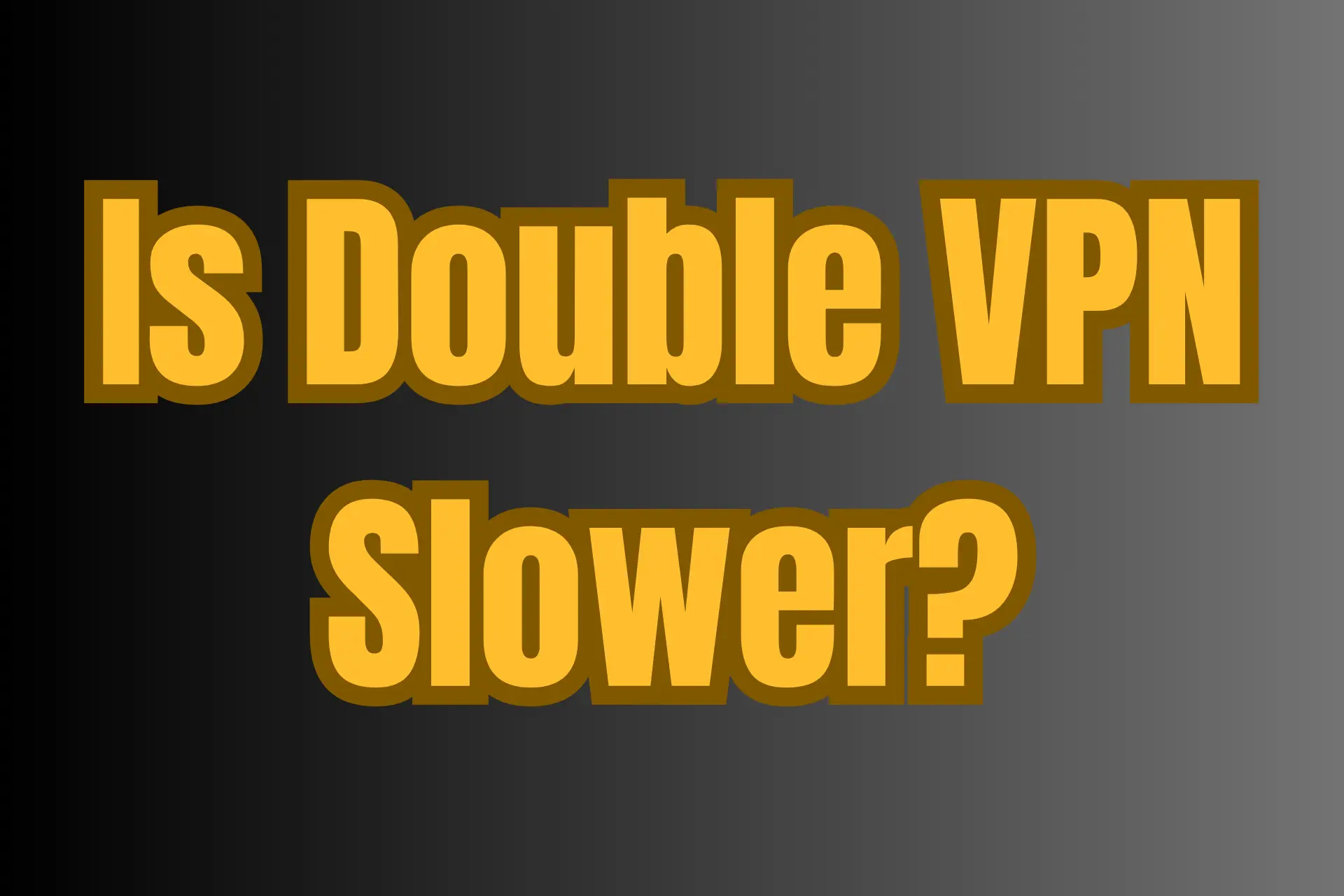
VPN servers are known for slowing down your internet connection speed. But the reputation of double VPN servers is even worse.
Does this notion hold true? If so, why and how much speed loss should you expect?
To answer these questions, we did some speed tests using Surfshark VPN. It’s among the top services on the market and offers arguably the most sophisticated double VPN solution out there.
Let us show you what we found.
How does double VPN affect speed?
Double VPN can affect your speed more negatively than a regular VPN server does. There are two main reasons why: longer data travel time and more layers of encryption.
If you use double VPN, your traffic will pass through two individual servers that are generally not located in the same country or territory.
In other words, it would take two detours before it reaches its target web server.
Since your traffic has to cover more ground, your connection will be subject to higher latency. The greater it is, the more noticeable the delay is.
The amount of additional latency double VPN causes depends on the locations of the countries hosting the two servers. The farther they are from each other, the longer your data’s journey will be.
Moreover, service providers usually don’t let you choose double VPN server pairings. If your hands are tied, you’ll have limited options to minimize latency increases.
When it comes to encryption, double VPN traffic passes through two secure tunnels instead of one. A single layer of military-grade encryption is enough to significantly drop your overall internet speed. Now imagine two of them.
To be clear, the second encrypted tunnel only enters the picture when your data approaches the second VPN server. Nevertheless, it will inevitably drive down your internet speed even more.
If you factor in hardware-crippling like server overload, you may experience much more lag.
Is double VPN slower?
Double VPN is definitely slower than regular VPN hardware. Even with the best possible setup, we still lost an additional 6% of our speed.
With Surfshark VPN’s Dynamic MultiHop feature, we were able to tailor our double VPN connection when we performed our tests in the Philippines. It allowed us to choose any two locations on its global network as entry and exit points.
To minimize the impact of hardware distance, we decided to pick Indonesia as our entry location and the Philippines as our exit one.
Courtesy of Speedtest by Ookla, here are the results:
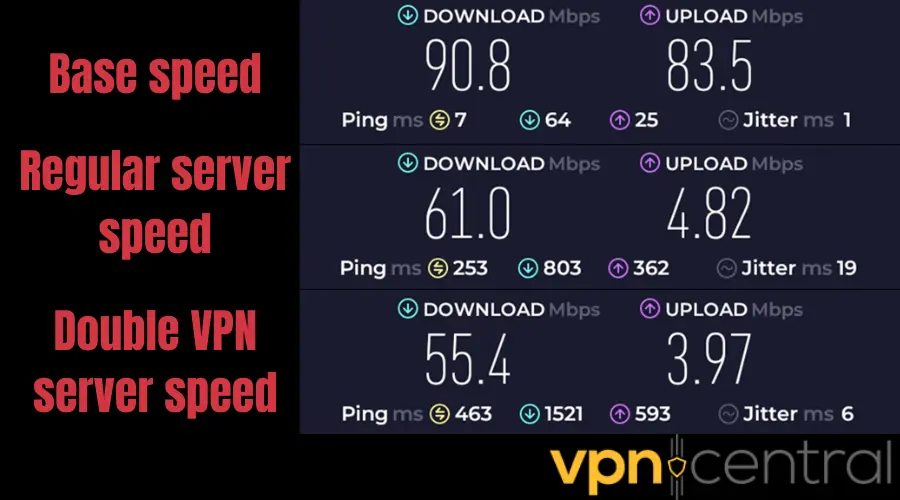
Have a look at the changes in download speed, upload speed, and ping:
| Download speed | Upload speed | Ping | |
| Regular VPN server | -32.82% | -94.23% | 3,514.29% |
| Double VPN server | -38.99% | -95.25% | 6,514.29% |
The extra 6% download speed drop must be due to the second layer of encryption. And if you use servers farther from your physical location and also farther from one another, you’ll most certainly experience higher latency.
Summary
Is double VPN slower? Yes, it is. Speed loss is the price you pay for the increased level of privacy and security you get.
Fortunately, VPN providers are highly aware of this issue and are innovating to solve it. With more and more companies improving on the feature, this problem will be less of a concern in the future.



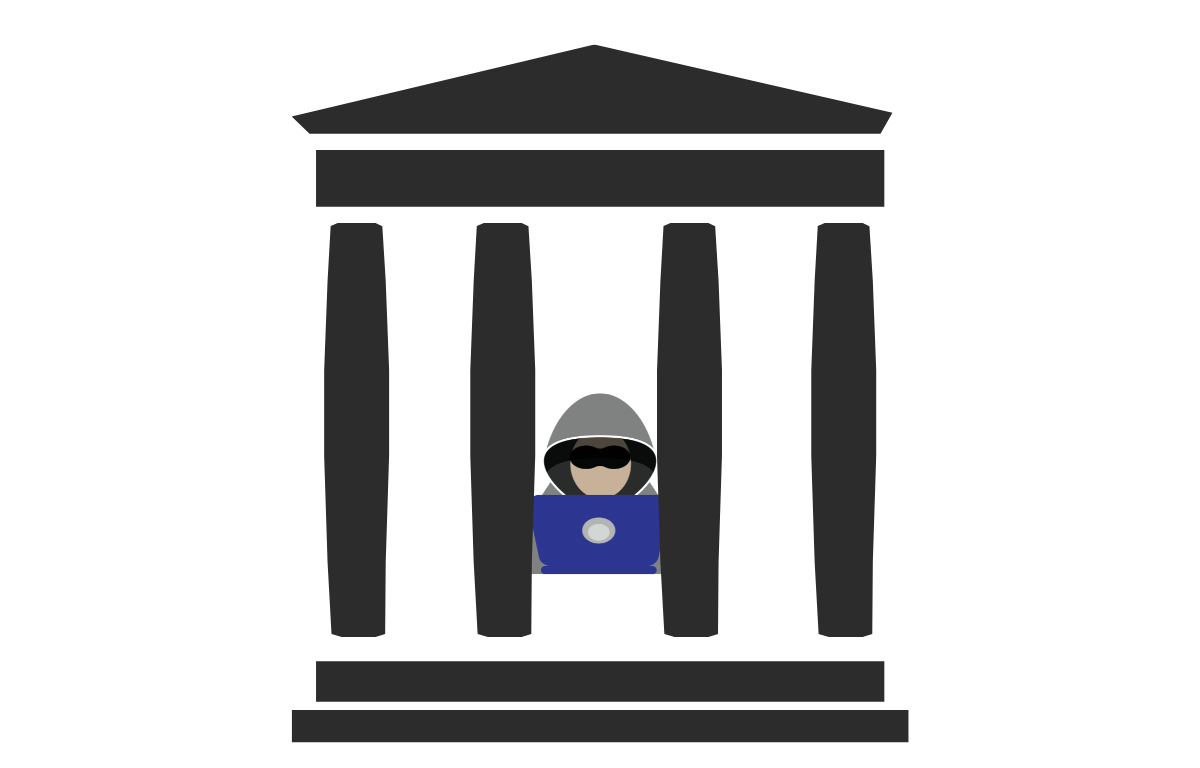
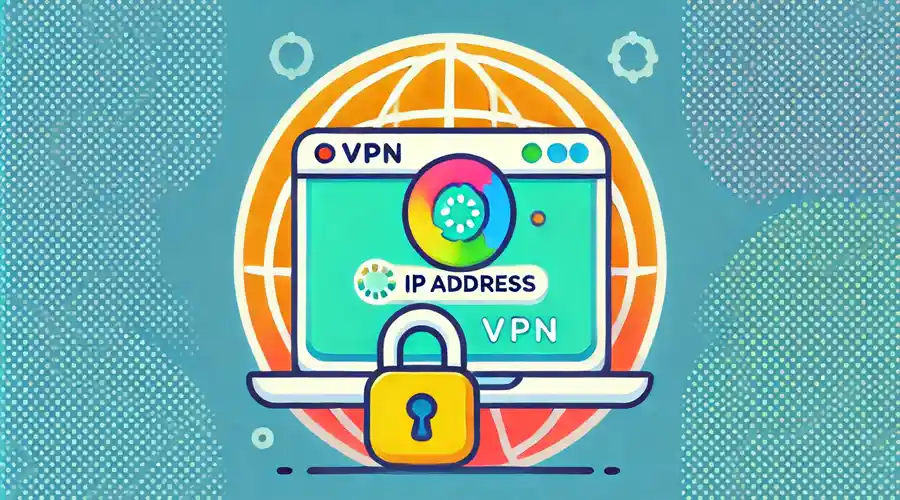
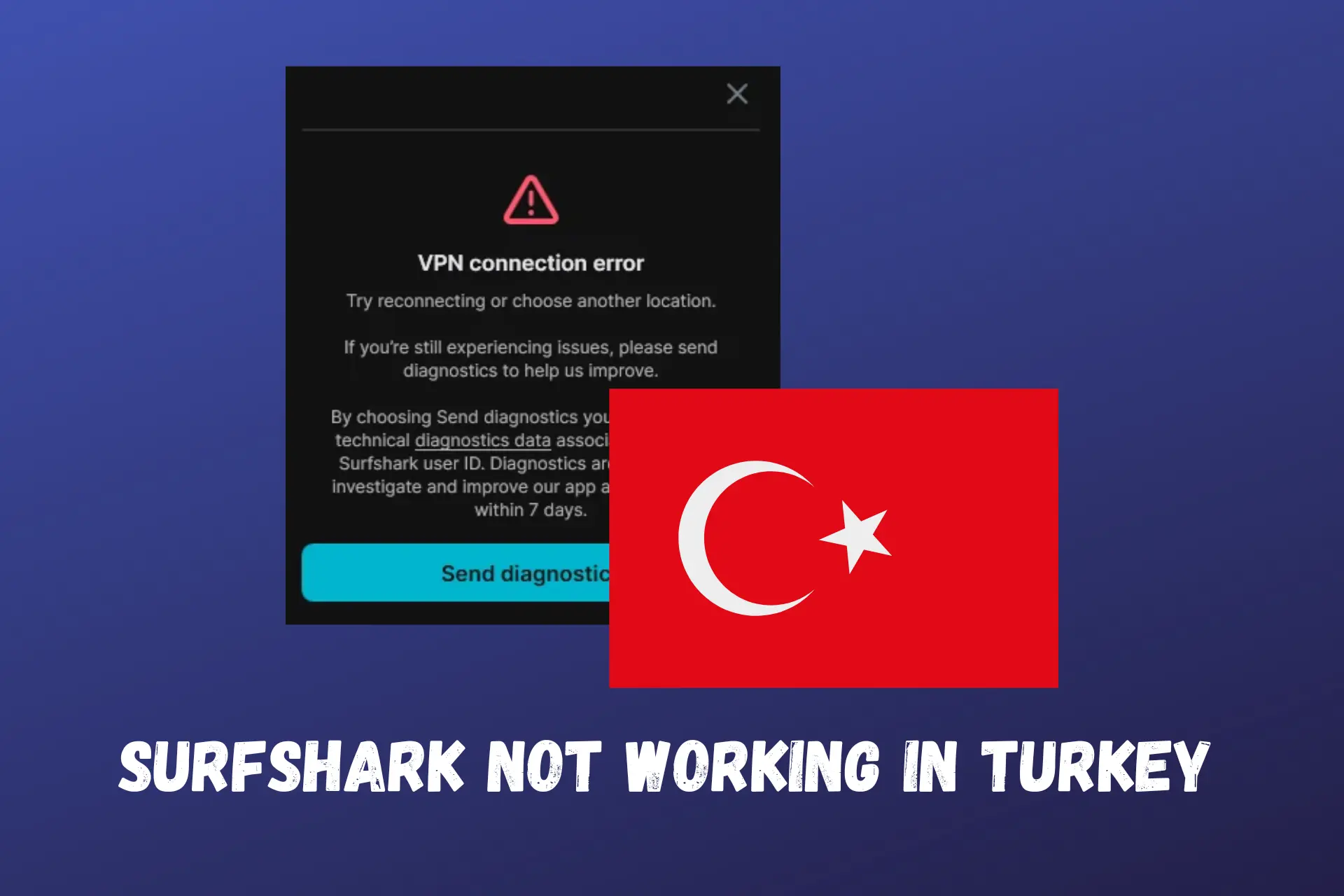
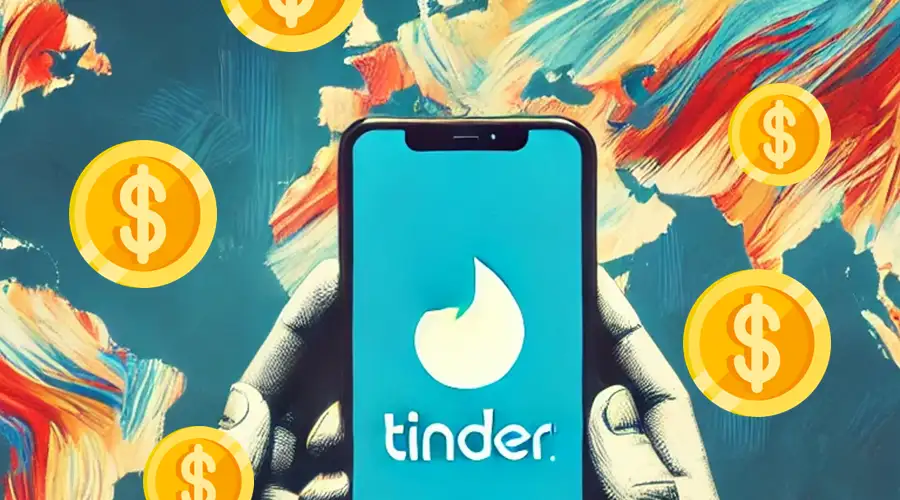


User forum
0 messages